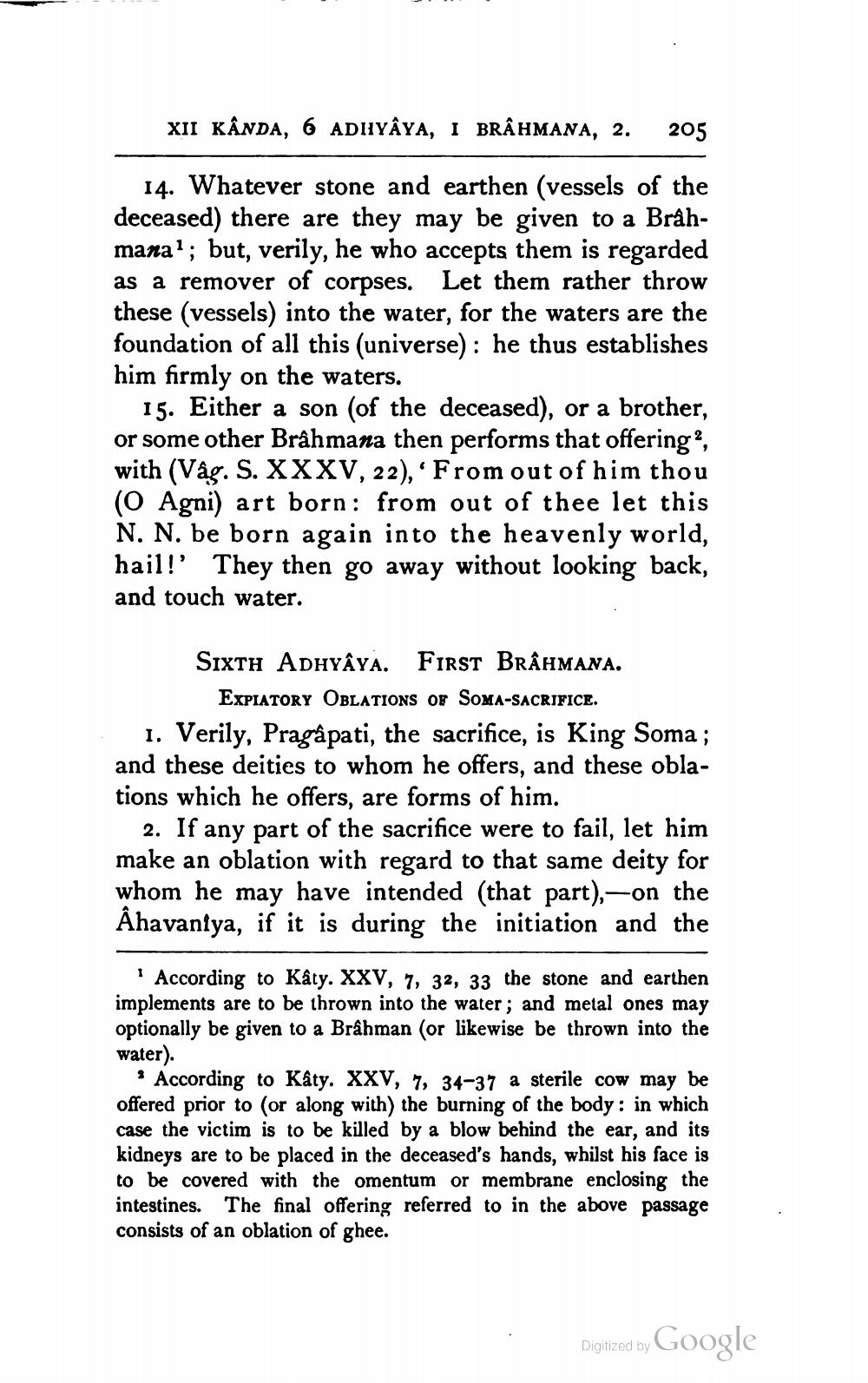________________
XII KÂNDA, 6 ADIIYÂYA, I BRÂHMANA, 2.
205
14. Whatever stone and earthen (vessels of the deceased) there are they may be given to a Brahmana?; but, verily, he who accepts them is regarded as a remover of corpses. Let them rather throw these (vessels) into the water, for the waters are the foundation of all this (universe): he thus establishes him firmly on the waters.
15. Either a son (of the deceased), or a brother, or some other Brâhmana then performs that offering?, with (Vâg. S. XXXV, 22), From out of him thou (O Agni) art born: from out of thee let this N. N. be born again into the heavenly world, hail!' They then go away without looking back, and touch water.
Sixth Adhyâya. First BRÂHMANA.
EXPIATORY OBLATIONS OF SOMA-SACRIFICE. 1. Verily, Pragâpati, the sacrifice, is King Soma; and these deities to whom he offers, and these oblations which he offers, are forms of him.
2. If any part of the sacrifice were to fail, let him make an oblation with regard to that same deity for whom he may have intended (that part),-on the Ahavaniya, if it is during the initiation and the
According to Kâty. XXV, 7, 32, 33 the stone and earthen implements are to be thrown into the water; and metal ones may optionally be given to a Brâhman (or likewise be thrown into the water).
According to Katy. XXV, 7, 34-37 a sterile cow may be offered prior to (or along with) the burning of the body: in which case the victim is to be killed by a blow behind the ear, and its kidneys are to be placed in the deceased's hands, whilst his face is to be covered with the omentum or membrane enclosing the intestines. The final offering referred to in the above passage consists of an oblation of ghee.
Digitized by Google




